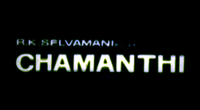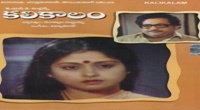Fellini Satyricon, or simply Satyricon, is a 1969 Italian fantasy drama film written and directed by Federico Fellini and loosely based on Petronius's work Satyricon, written during the reign of the emperor Nero and set in imperial Rome. The film is divided into nine episodes, following the scholar Encolpius and his friend Ascyltus as they try to win the heart of the young boy Gitón, whom they both love, within the film's depiction of a surreal and dreamlike Roman landscape and culture.
| Fellini Satyricon | |
|---|---|
Italian theatrical release poster | |
| Directed by | Federico Fellini |
| Produced by | Alberto Grimaldi |
| Screenplay by | Federico Fellini Bernardino Zapponi Brunello Rondi |
| Based on | Satyricon by Petronius |
| Starring | Martin Potter Hiram Keller Max Born Salvo Randone |
| Music by | Nino Rota ?lhan Mimaro?lu Tod Dockstader Andrew Rudin |
| Cinematography | Giuseppe Rotunno |
| Edited by | Ruggero Mastroianni |
Production company | Produzioni Europee Associati (PEA) |
| Distributed by | United Artists |
Release date |
|
Running time | 129 minutes |
| Country | Italy |
| Language | Italian Latin |
| Budget | US$3 million |
| Box office | $1.4 million (US/ Canada rentals) $8 million (outside Italy) |
Screenplay
The film opens on a graffiti-covered wall with Encolpius lamenting the loss of his lover Gitón to Ascyltus. Vowing to win him back, he learns at the Thermae that Ascyltus sold Gitón to the actor Vernacchio. At the theatre, he discovers Vernacchio and Gitón performing in a lewd play based on the "emperor's miracle": a slave's hand is axed off and replaced with a gold one. Encolpius storms the stage and reclaims Gitón. On their return to Encolpius's home in the Insula Felicles, a Roman tenement building, they walk through the vast Roman brothel known as the Lupanare, observing numerous sensual scenes. They fall asleep after making love at Encolpius's place. Ascyltus sneaks into the room, waking Encolpius with a whiplash. Since both share the tenement room, Encolpius proposes they divide up their property and separate. Ascyltus mockingly suggests they split Gitón in half. Encolpius is driven to suicidal despair, however, when Gitón decides to leave with Ascyltus. At that moment, an earthquake destroys the tenement.
Encolpius meets the poet Eumolpus at the art museum. The elderly poet blames current corruption on the mania for money and invites his young friend to a banquet held at the villa of Trimalchio, a wealthy freeman, and his wife Fortunata. Eumolpus's declamation of poetry is met with catcalls and thrown food. While Fortunata performs a frantic dance, the bored Trimalchio turns his attention to two very young boys. Scandalized, Fortunata berates her husband who attacks her then has her covered in gizzards and gravy. Fancying himself a poet, Trimalchio recites one of his finer poems whereupon Eumolpus accuses him of stealing verses from Lucretius. Enraged, Trimalchio orders the poet to be tortured by his slaves in the villa's huge kitchen furnace. The guests are then invited to visit Trimalchio's tomb where he enacts his own death in an ostentatious ceremony. The story of the Matron of Ephesus is recounted, the first story within a story in the film. Encolpius finally leaves the villa, helping the limping, beaten Eumolpus to drink water from a pool in a tilled field. In return for his kindness, Eumolpus bequeaths the spirit of poetry to his young friend.
The next morning Encolpius, Gitón, and Ascyltus are imprisoned on the pirate ship of Lichas, a middle-aged merchant; they are part of a consignment of attractive young men being delivered for the titillation of the reclusive Roman emperor. Lichas selects Encolpius for a Greco-Roman wrestling match and quickly subdues him. Smitten by his beauty, Lichas takes Encolpius as his spouse in a wedding ceremony blessed by his wife, Tryphaena. After a long voyage the ship arrives at the emperor's private island, only to find it overrun by soldiers in the service of a usurper. The teenage emperor kills himself, and the soldiers board the ship and behead Lichas under Tryphaena's satisfied gaze. While "new Caesar" holds a fearsome victory parade back in Rome, Encolpius and Ascyltus escape the soldiers and make their way inland. They discover an abandoned villa, whose owners have freed their slaves and committed suicide to escape the new emperor. Encolpius and Ascyltus spend the night on the property and make love with an African slave girl who has stayed behind. Fleeing the villa when soldiers on horseback arrive in the courtyard to burn the owners' corpses, the two friends reach a desert. Ascyltus placates a nymphomaniac's demands in a covered wagon while Encolpius waits outside, listening to the woman's servant discuss a hermaphrodite demi-god reputed to possess healing powers at the Temple of Ceres. With the aid of a mercenary, they kill two men and kidnap the hermaphrodite in the hope of obtaining a ransom. Once exposed to the desert sun, however, the hermaphrodite sickens and dies of thirst. Enraged, the mercenary tries to murder his two companions but is overpowered and killed.
Captured by soldiers, Encolpius is released in a labyrinth and forced to play Theseus to a gladiator's Minotaur for the amusement of spectators at the festival of Momus, the God of Laughter. When the gladiator spares Encolpius's life because of his well-spoken words of mercy, the festival rewards the young man with Ariadne, a sensual woman with whom he must copulate as the crowd looks on. Impotent, Encolpius is publicly humiliated by Ariadne. Eumolpus offers to take him to the Garden of Delights where prostitutes are said to effect a cure for his impotence but the treatment - gentle whipping of the buttocks - fails miserably. In the second of the stories within a story in the film, the owner of the Garden of Delights narrates the tale of Oenothea to Encolpius. For having rejected his advances, a sorcerer curses a beautiful young woman: she must spend her days kindling fires for the village's hearths from her genitalia. Inspired, Encolpius and Ascyltus hire a boatman to take them to Oenothea's home. Greeted by an old woman who has him drink a potion, Encolpius falls under a spell where his sexual prowess is restored to him by Oenothea in the form of an Earth Mother figure and sorceress. When Ascyltus is murdered in a field by the boatman, Encolpius decides to join Eumolpus's ship bound for North Africa. But Eumolpus has died in the meantime, leaving as his heirs all those willing to eat his corpse. Encolpius hasn't the stomach for this last and bitter mockery but is nonetheless invited by the captain to board the ship. In a voice-over, Encolpius explains that he set sail with the captain and his crew. His words end in mid-sentence, as does Petronius's book, when a distant island appears on the horizon and the film cuts abruptly to frescoes of the film's characters on a crumbling wall.
- Martin Potter as Encolpius
- Hiram Keller as Ascyltus
- Max Born as Gitón
- Salvo Randone as Eumolpus
- Mario Romagnoli as Trimalchio
- Magali Noël as Fortunata
- Capucine as Tryphaena
- Alain Cuny as Lichas
- Fanfulla as Vernacchio
- Donyale Luna as Oenothea
- Danika La Loggia as Scintilla
- Gordon Mitchell as the thief
- Lucia Bosè as the suicidal wife
- Joseph Wheeler as the suicidal husband
- Luigi Montefiori as the minotaur
- Elisa Mainardi as Arianna
- Tanya Lopert as the emperor
- Alvaro Vitali as Julius Caesar
- Richard Simmons as the lyre player (uncredited)
Fellini's project saw competition from another film titled Satyricon, released the same year. Producer Alfredo Bini had registered the Satyricon title in 1962. When Fellini and his producer Alberto Grimaldi started work on their film, Bini contracted Gian Luigi Polidoro to direct his own version. Grimaldi sued Bini to halt the competing film, but lost; as a result, Fellini's picture was titled Fellini Satyricon to distinguish it.
Co-screenwriter Bernardino Zapponi noted that Fellini used a deliberately jerky form of dubbing that caused the dialogue to appear out of sync with the actors' lips. This was in keeping with his original intention of creating a profound sense of estrangement throughout the film.
Petronius's original text survives only in fragments. While recuperating from a debilitating illness in 1967, Fellini reread Petronius and was fascinated by the missing parts, the large gaps between one episode and the next. The text's fragmentary nature encouraged him to go beyond the traditional approach of recreating the past in film: the key to a visionary cinematic adaptation lay in narrative techniques of the dream state that exploited the dream's imminent qualities of mystery, enigma, immorality, outlandishness, and contradiction. In Comments on Film, Fellini explained that his goal in adapting Petronius's classic was "to eliminate the borderline between dream and imagination: to invent everything and then to objectify the fantasy; to get some distance from it in order to explore it as something all of a piece and unknowable." Critic Christopher Sharrett observes that Fellini's "adaptation also reveals the paucity of the source, the kitschiness of the 'big ideas' from literary history. Genre film is a comfortable vehicle for the critical agenda undertaken, as Fellini piles up genre tropes as a way of showing the inherent generic contrivance, the 'trashiness,' that is basic to all such representation."
The most important of the narrative changes that Fellini makes to Petronius's text is the addition of a battle between Encolpius and the Minotaur in the Labyrinth thereby linking Encolpius to Theseus and the journey into the unconscious. Other original sequences include a nymphomaniac in a desert caravan whose despondent husband pays Ascyltus and Encolpius to couple with her, and an hermaphrodite worshipped as a demigod at the Temple of Ceres. Abducted by the two protagonists and a mercenary, the hermaphrodite later dies a miserable death in a desert landscape that, in Fellini's adaptation, is posed as an ill-omened event, none of which is to be found in the Petronian version.
Though the two protagonists, Encolpius and Ascyltus, appear throughout, the characters and locations surrounding them change unexpectedly. This intentional technique of fragmentation conveys Fellini's view of both the original text and the nature of history itself, and is echoed visually in the film's final shot of a ruined villa whose walls, painted with frescoes of the scenes we have just seen, are crumbling, fading and incomplete. Fellini's interest in Carl Jung's theory of the collective unconscious is also on display with an abundance of archetypes in highly dreamlike settings.
Home video
Fellini Satyricon was released on VHS by 20th Century Fox Home Entertainment on September 7, 1999. The film was then released on DVD by Metro-Goldwyn-Mayer Home Entertainment on April 10, 2001 for Region 1 and on May 15, 2005 for the German market.
On February 24, 2015, The Criterion Collection released the film, newly restored through a 4K digital transfer, on Blu-ray and DVD for Region A and Region 1 respectively. The restoration was supervised by the film's cinematographer Giuseppe Rotunno. Both of the editions include the film's original trailer, an audio commentary of Eileen Lanouette Hughes's memoir On the Set of "Fellini Satyricon": A Behind-the-Scenes Diary, Gideon Bachmann's hour-long documentary Ciao, Federico!, archival interviews with the film's director Federico Fellini, a new interview with Rotunno done in 2011, a new exclusively made documentary titled Fellini and Petronius featuring discussions between classicists Luca Canali and Joanna Paul about the film's adaptation of Satyricon, a new interview with Mary Ellen Mark, a photographer for Look magazine, about her experiences on the film's set taking photographs of the shoot, a gallery of ephemera related to the film, a newly made English subtitle translation, and a leaflet containing a new essay by author and film scholar Michael Wood. Exclusive to the Blu-ray edition is the addition of an uncompressed monaural soundtrack. The new Blu-ray and DVD cover and interior poster was illustrated by Edward Kinsella and designed by Eric Skillman. On April 27, 2015, Eureka Entertainment released the film on Blu-ray in the United Kingdom as part of the Masters of Cinema series, using as a foundation the 4K digital transfer done for the Criterion release. This release includes a 36-page booklet and the film's original trailer.
Italy
First screened at the 30th Venice Film Festival on 4 September 1969, Fellini Satyricon received generally positive rev
Watch movie Fellini Satyricon online on Amazon
Watch movie Fellini Satyricon online
Watch The Movie On PrimeHera Pheri Full HD Movie Download

Awaargi Full HD Movie Download

Aag Ka Dariya Full HD Movie Download

Laat Saab Full HD Movie Download

Apna Hath Jagannath Full HD Movie Download

Mera Haque Full HD Movie Download

Maahir Full HD Movie Download

Baaz: A Bird in Danger Full HD Movie Download

Revolutionary Road Full HD Movie Download

Nandini I Love You Full HD Movie Download

Chamanthi Full HD Movie Download

Hyderabad Rowdy Full HD Movie Download

Sikaram Full HD Movie Download

Yamapasam Full HD Movie Download

Gehri Chhot (1986) Full HD Movie Download
.jpg)
Azhagu Nilayam Full HD Movie Download

Akkum Bakkum Full HD Movie Download

Kali Kaalam Full HD Movie Download

Kati Patang Full HD Movie Download

Palay Khan Full HD Movie Download

Sins-English Full HD Movie Download

Download latest Movie from bollywood
- 1> baaghi 3
- 2> THE SKY IS PINK MOVIE FULL STORY AND REVIEW
- 3> Luka Chuppi
- 4> TO ALL THE BOYS I’VE LOVED BEFORE
- 5> Kabir Singh
- 6> Street Dancer 3D
- 7> Simmba
- 8> Gone Girl
- 9> The Girl Who Lived
- 10> Ludo
- 11> DILWALE DULHANIA LE JAYENGE
- 12> GUILTY
- 13> The Godfather
- 14> Adventures of Rusty
- 15> Sooryavanshi
- 16> Satyameva Jayate 2
- 17> Thappad
- 18> Bhool Bhulaiyaa 2
- 19> KGFChapter 2
- 20> Mardaani 2
- 21> Pinjar
- 22> Shivaji maharaj
- 23> Ek Villian 2
- 24> Hungama 2
- 25> Divergent
- 26> Mumbai Saga
- 27> The Internship
- 28> HIT (telugu)
- 29> Panga
- 30> The perfect date
- 31> 16 December
- 32> Gopala Gopala (Telugu)
- 33> Brahmastra
- 34> Gangubai Kathiawadi
- 35> Manmadhudu
- 36> Nenu local
- 37> Mahanati
- 38> Shatamanam bavathi
- 39> Lagaan
- 40> After
- 41> MOM
- 42> Shamshera
- 43> Raguvaran BTech
- 44> Khakee
- 45> The villain
- 46> OM
- 47> Mr. perfect
- 48> Bueatifull mind
- 49> Hichki
- 50> Gabbar Singh
- 51> Jogi
- 52> Before Sunrise
- 53> Before Sunset
- 54> Before Midnight
- 55> The Big Bull
- 56> Top Gun: Maverick
- 57> The Purge
- 58> The Sky is Pink
- 59> Laxmmi Bomb
- 60> Sadak 2
- 61> Sufna
- 62> Prithviraj
- 63> PK
- 64> Coolie No 1(2020)
- 65> Black Widow
- 66> Dear Zindagi
- 67> Dil Bechara
- 68> PHIR HERA PHERI
- 69> WAR
- 70> Dostana
- 71> RRR: Roudram Ranam Rudhiram
- 72> Maidan
- 73> Dabbang 3
- 74> Chhalaang
- 75> life as we know it
- 76> SherShaah
- 77> Sandeep Aur Pinky Faraar
- 78> Event Horizon
- 79> 83
- 80> Radhe: Your Most Wanted Bhai
- 81> Gunjan Saxena: The Kargil Girl
- 82> Mr India
- 83> Vivah
- 84> Anokha Bandhan
- 85> Ghost
- 86> Bhoot: Part One - The Haunted Ship
- 87> Haseen Dilruba
- 88> Laal Singh Chaddha
- 89> Qismat
- 90> Rajput
- 91> Drive
- 92> Dil Chahta Hai
- 93> Dil Ki Baazi
- 94> Dil Ka Rishta
- 95> Teesri Manzil
- 96> Dil
- 97> Love Aaj Kal
- 98> Khaali Peeli
- 99> Bunty Aur Babli 2
- 100> Atrangi Re
- 101> Gulabo Sitabo
- 102> Jodi
- 103> Suraj Pe Mangal Bhari
- 104> Deewana
- 105> Attack
- 106> Sardar Udham Singh
- 107> Toofan
- 108> THE LOVEBIRDS
- 109> Jersey
- 110> Ginny Weds Sunny
- 111> Thalaivi
- 112> Shiddat
- 113> Angels vs Zombies
- 114> Koi Mil Gya
- 115> Thank God
- 116> Bhuj: The Pride of India
- 117> Hum Aapke Hain Kaun
- 118> The Platform
- 119> Bird Box
- 120> Roohi Afzana
- 121> Torbaaz
- 122> Nikamma
- 123> World War Z
- 124> Extraction
- 125> Train to Busan
- 126> Life of Pi
- 127> SHAADI MEIN JROOR AANA
- 128> Himmat Aur Mehnat
- 129> To All The Boys: P.S. I Still Love You
- 130> Mimi
- 131> Good Newwz
- 132> Shubh Mangal Zyada Saavdhan
- 133> Raabta
- 134> Harry Potter and the Philosopher's Stone
- 135> Harry Potter and the Chamber of Secrets
- 136> Chhapaak
- 137> War of the Worlds
- 138> Harry Potter and the Prisoner of Azkaban
- 139> Harry Potter and the Goblet of Fire
- 140> MURDER MYSTERY
- 141> Shakuntala Devi
- 142> Bachchan Pandey
- 143> Jayeshbhai Jordar
- 144> Sheer Qorma
- 145> Saina
- 146> 'O' Pushpa I hate tears
- 147> Kedarnath
- 148> MS Dhoni The Untold Story
- 149> Chhichhore
- 150> Badhaai Ho
- 151> Unstoppable
- 152> Oz the Great And Powerful
- 153> The Girl on the Train
- 154> Haathi Mere Saathi 2020
- 155> The Conjuring: The Devil Made Me Do It
- 156> Gandhi Se Pehle Gandhi
- 157> The Song of Scorpions
- 158> Srimanthudu
- 159> Hello Guru Prema Kosame
- 160> Beauty and The Beast
- 161> Black Panther
- 162> Charlie and the Chocolate Factory
- 163> Bole Chudiyan
- 164> Fidaa
- 165> Duvvada Jagannadham
- 166> Bruce Lee: The Fighter
- 167> Hyper
- 168> Yaara
- 169> Red (2020)
- 170> Shivam
- 171> That Is Mahalakshmi
- 172> Nishabdham
- 173> Aashram 2020 web series
- 174> Laxmii
- 175> Mismatched
- 176> STUDENT OF THE YEAR 2
- 177> NAIL POLISH
- 178> Ramprasad Ki Tehrvi
- 179> KAAGAZ
- 180> 12 o Clock
- 181> The Power
- 182> bolo hau
- 183> Tribhanga
- 184> JAMUN
- 185> Madam Chief Minister
- 186> Maasaab
- 187> Aadhaar
- 188> Tanhaji
- 189> Bhaagi 3
- 190> Bhootnath
- 191> MALANG
- 192> Jai Mummy Di
- 193> Haathi Mere Saathi 2021
- 194> Shakeela
- 195> Unpaused
- 196> Annayya
- 197> Vamsoddharakudu
- 198> Mrugaraju
- 199> Narasimha Naidu
- 200> Sankranti
- 201> Manasu Maata Vinadhu
- 202> Anjaane
- 203> Apaharan
- 204> Bachke Rehna Re Baba
- 205> Bewafaa
- 206> Roohi
- 207> Radhe
- 208> Zindagi Khoobsoorat Hai
- 209> Yeh Mohabbat Hai
- 210> Yeh Kya Ho Raha Hai?
- 211> The Tomorrow War
- 212> DehradunDiary
- 213> Meri Shaadi Karaoo
- 214> Matruu Ki Bijlee Ka Mandola
- 215> No One Killed Jesica
- 216> Aag Ka Goola
- 217> Eight Million Dollars
- 218> Three Hundred
- 219> Cats and Dog
- 220> Decoy
- 221> Gold Rush
- 222> You Have Got Mail
- 223> Final Destination three
- 224> Tofan
- 225> Jungle
